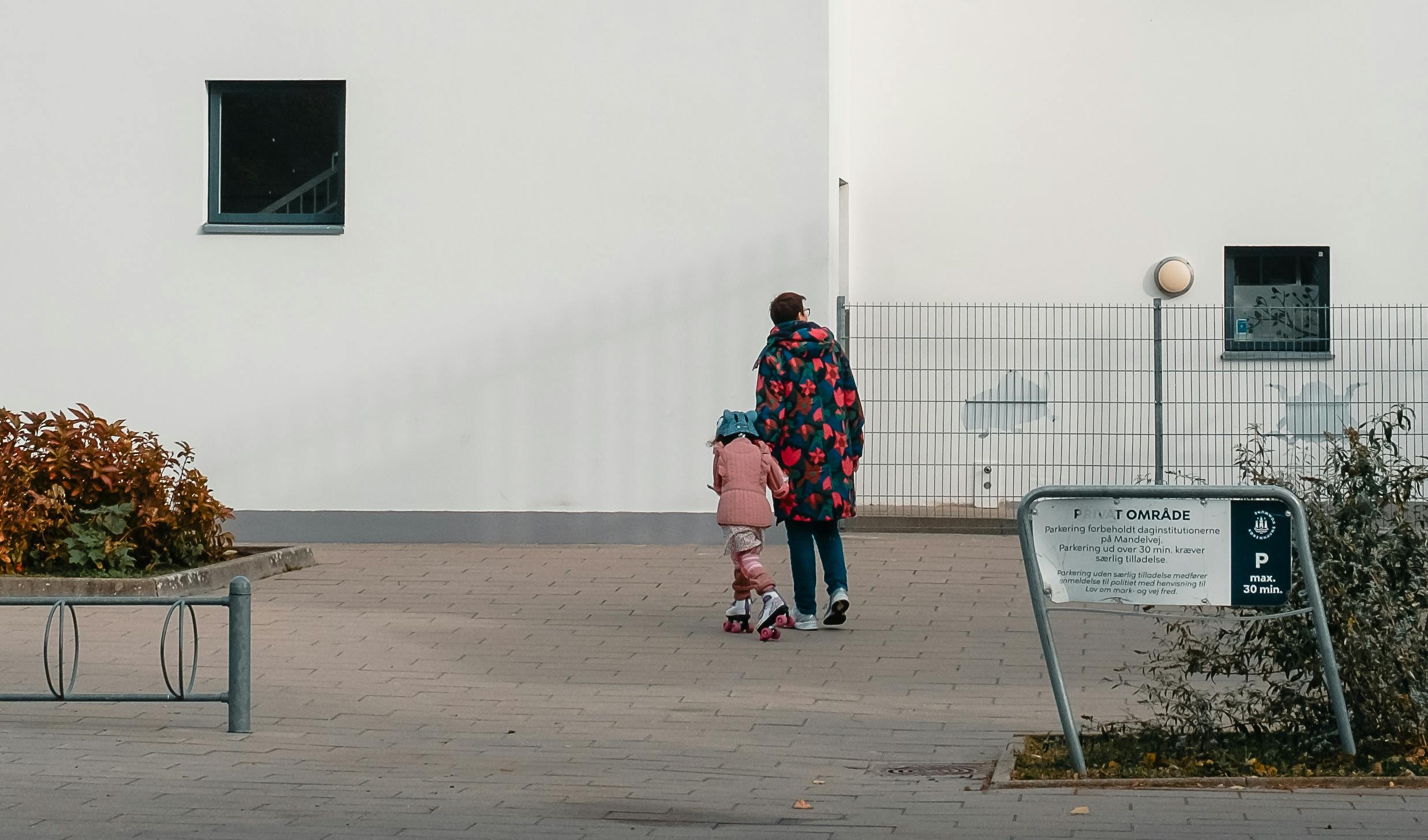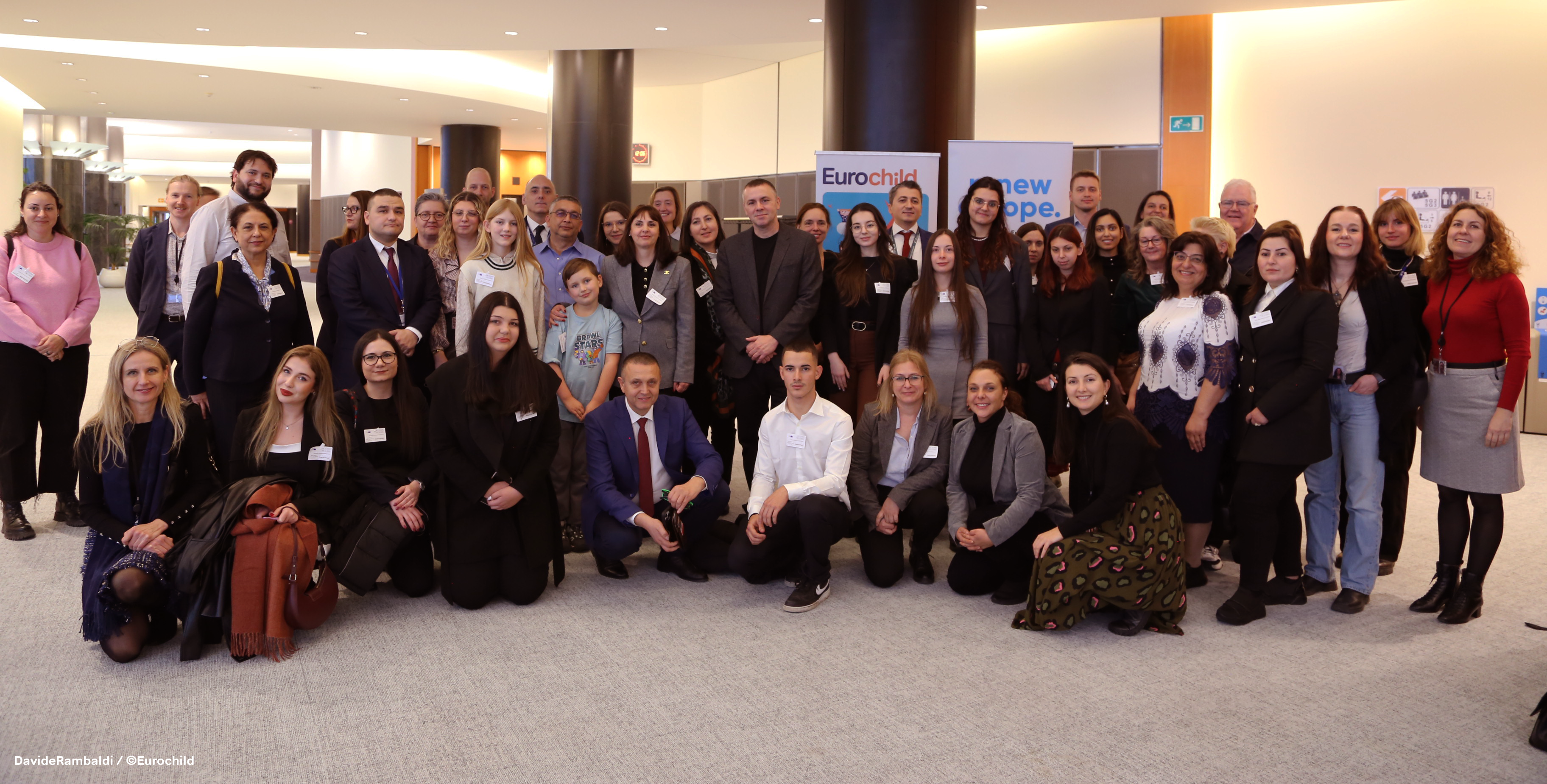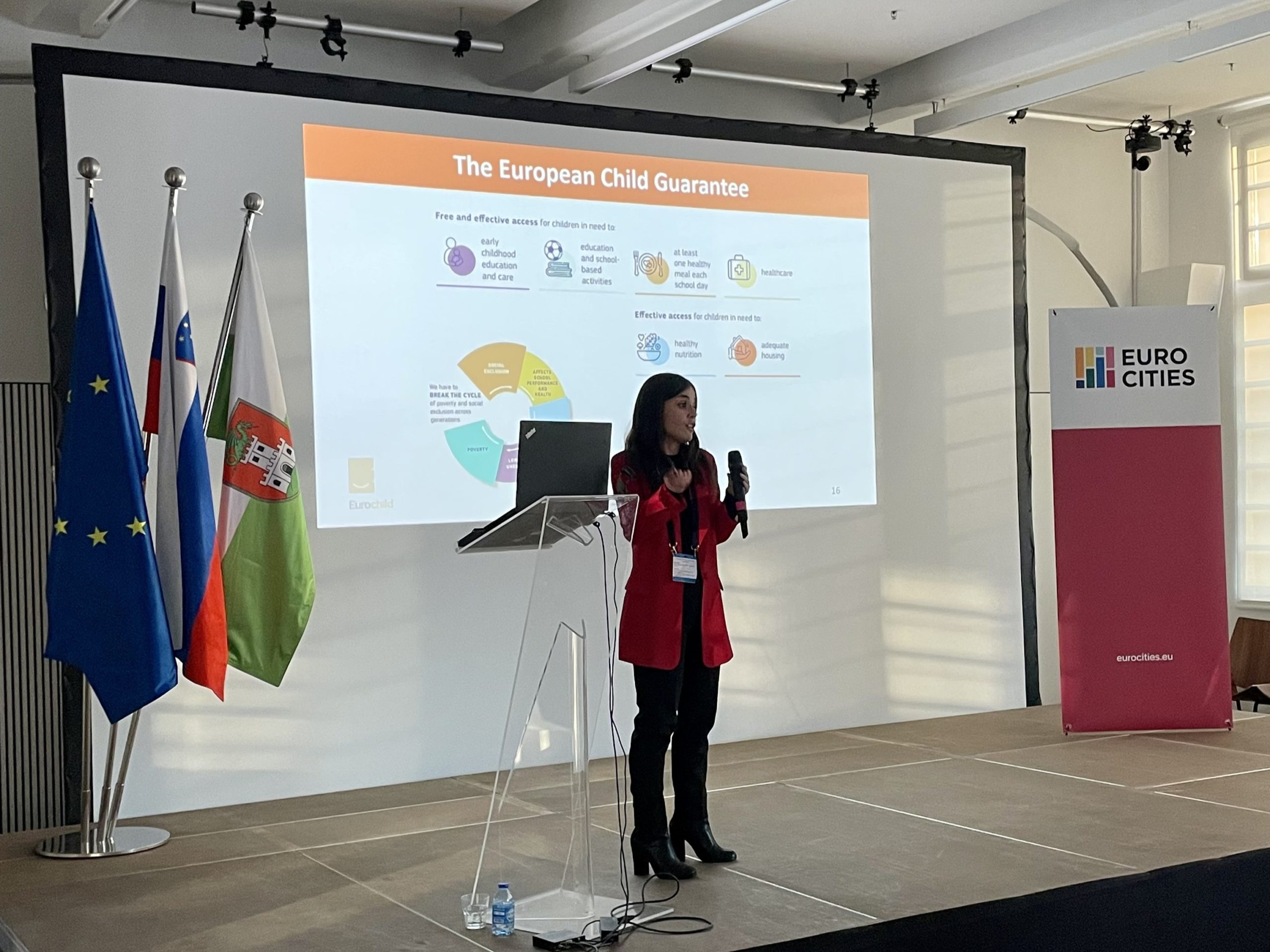The European Child Guarantee: Progress and future directions at the three-year mark
Facilitating an exchange among Managing Authorities, children's rights organizations, and project promoters through an online event on 26 September.
Since 2023, Eurochild has been a leading voice in the debate on reduction of child poverty through the effective implementation of the European Child Guarantee and its role in the Community of Practice on Social Inclusion (CoP on SI) hosted by European Social Fund Agency. By co-organizing and presenting at events geared toward European Social Fund Plus Managing Authorities, national public authorities, and civil society organizations, Eurochild has effectively engaged key stakeholders in advancing the Child Guarantee agenda.
The most recent online event, “The European Child Guarantee: Progress and Future Directions at the Three-Year Mark,” held on 26 September, gathered approximately 140 participants to exchange insights on enhancing ECG implementation. This event provided a valuable platform for understanding ECG funding mechanisms and exploring the connection between policy and funding.
The event consisted of three main sessions: Data Collection, Implementation Successes and Challenges, and Child Involvement.
In the first session, the European Commission presented the current status of ECG implementation, with the DG Reform unit outlining how the technical support instrument has aided ECG delivery in 12 Member States. UNICEF Innocenti presented a compelling analysis of how social and employment policies can reduce child poverty and social exclusion, emphasizing the importance of accessible labor markets, adequate salaries, and sufficient child and family benefits to meet the European Pillar of Social Rights target of lifting at least 5 million children out of poverty by 2030. Additionally, the EU Roma Network, in collaboration with Eurochild, highlighted key findings from their analysis of ECG National Action Plans (NAPs) reports. Their findings underscored the need for specific indicators for Roma children and the importance of integrating ECG NAPs into broader Roma strategy frameworks to foster coordinated policy efforts.
Eurochild’s preliminary findings from an assessment of ECG biennial reports from ten countries suggest that ECG has played a significant role in identifying the needs of children in need and initiating reforms and action plans in early childhood education and care, education, healthcare, nutrition, and housing. The cross-sectoral cooperation between ministries is recognized as vital to addressing child poverty's complexities. To enhance monitoring, some countries are developing improved data frameworks and indicators. However, stakeholder engagement, particularly from civil society organizations (CSOs) and children themselves, remains limited, prompting Eurochild to advocate for transparent mechanisms for their involvement in ECG implementation, monitoring and evaluation.
In the second session, Managing Authorities, ECG national coordinators, and project developers shared experiences and highlighted achievements and challenges in ECG implementation. Bulgaria, for example, committed over €136 million for initiatives benefiting 200,000 children, including the “Future for Children” program, which focuses on preventing child abandonment and reducing child poverty. Romania, aiming to institutionalize child participation also for better realization of the ECG, recently amended legislation to strengthen children’s rights. Representatives from Czechia, Sweden, and Portugal also shared successful practices within their ECG frameworks.
The third session emphasized child participation in decision-making. Eurochild showcased the joint report ‘Our Rights. Our Future. The Europe We Want.’, which reflects children’s primary concerns. The European Child Participation Platform, hosted the by the European Commission, provides an opportunity for children to engage in EU policy consultations on child protection, democracy, and voting rights. Plans are in place to launch the EU Children’s Participation Platform and the EU Child Guarantee in 2025.
Finally, EuroHealthNet underscored that ECG-related strategies should consider the holistic health of children and their families. Addressing the social, environmental, economic, and commercial determinants of health will be essential for integrated approaches that support child well-being in Europe.





